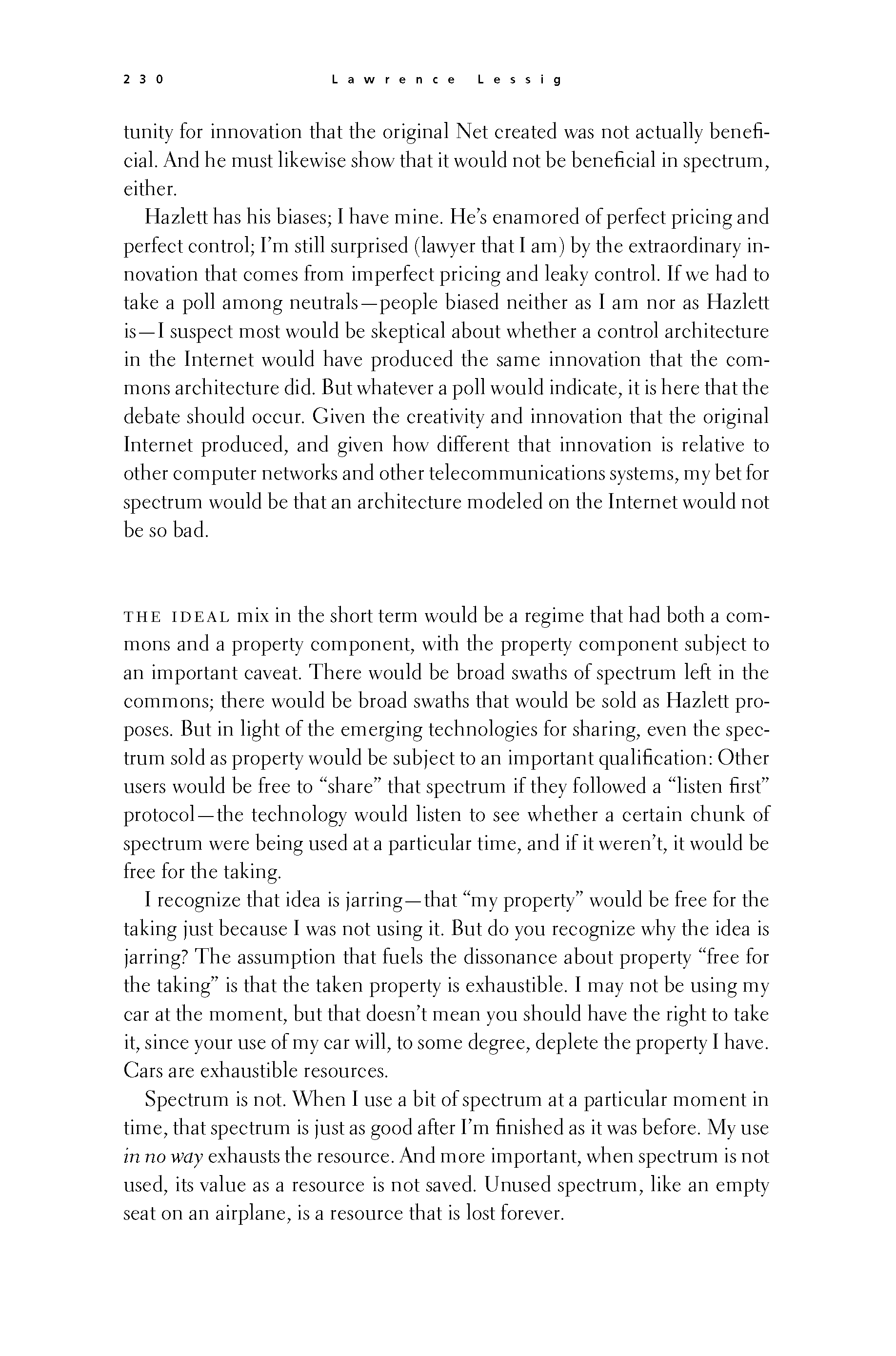 p229 _
-chap- _
toc-1 _
p230w _
toc-2 _
+chap+ _
p231
p229 _
-chap- _
toc-1 _
p230w _
toc-2 _
+chap+ _
p231
tunity for innovation that the original Net created was not actually benefi-
cial. And he must likewise show that it would not be beneficial in spectrum,
either.
Hazlett has his biases; I have mine. He's enamored of perfect pricing and
perfect control; I'm still surprised (lawyer that I am) by the extraordinary in-
novation that comes from imperfect pricing and leaky control. If we had to
take a poll among neutrals -- people biased neither as I am nor as Hazlett
is -- I suspect most would be skeptical about whether a control architecture
in the Internet would have produced the same innovation that the com-
mons architecture did. But whatever a poll would indicate, it is here that the
debate should occur. Given the creativity and innovation that the original
Internet produced, and given how different that innovation is relative to
other computer networks and other telecommunications systems, my bet for
spectrum would be that an architecture modeled on the Internet would not
be so bad.
///\\\
The ideal mix in the short term would be a regime that had both a com-
mons and a property component, with the property component subject to
an important caveat. There would be broad swaths of spectrum left in the
commons; there would be broad swaths that would be sold as Hazlett pro-
poses. But in light of the emerging technologies for sharing, even the spec-
trum sold as property would be subject to an important qualification: Other
users would be free to "share" that spectrum if they followed a "listen first"
protocol -- the technology would listen to see whether a certain chunk of
spectrum were being used at a particular time, and if it weren't, it would be
free for the taking.
I recognize that idea is jarring -- that "my property" would be free for the
taking just because I was not using it. But do you recognize why the idea is
jarring? The assumption that fuels the dissonance about property "free for
the taking" is that the taken property is exhaustible. I may not be using my
car at the moment, but that doesn't mean you should have the right to take
it, since your use of my car will, to some degree, deplete the property I have.
Cars are exhaustible resources.
Spectrum is not. When I use a bit of spectrum at a particular moment in
time, that spectrum is just as good after I'm finished as it was before. My use
_in_no_way_ exhausts the resource. And more important, when spectrum is not
used, its value as a resource is not saved. Unused spectrum, like an empty
seat on an airplane, is a resource that is lost forever.
[[230]]
p229 _
-chap- _
toc-1 _
p230w _
toc-2 _
+chap+ _
p231